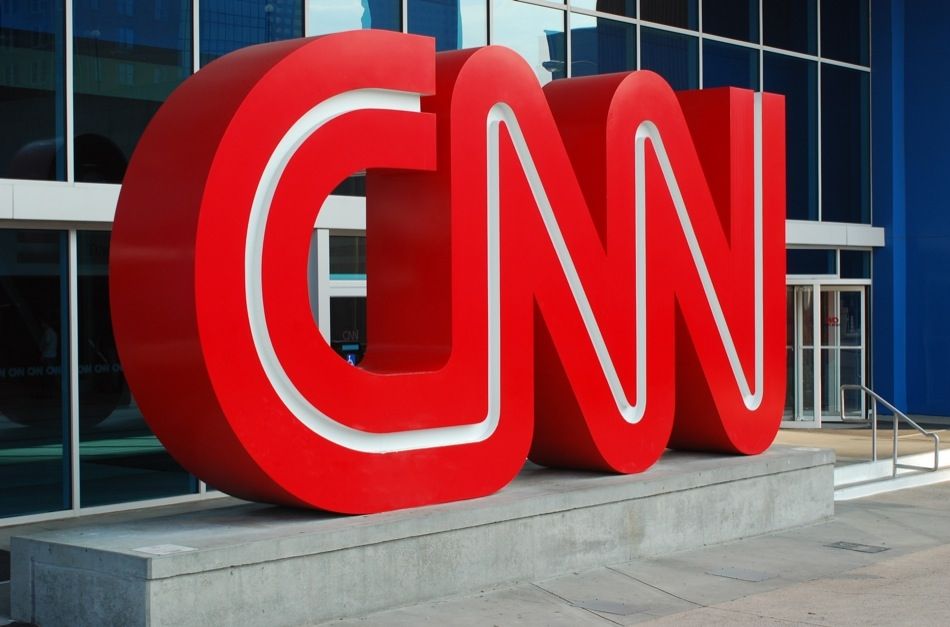
Nearly seven months after falsely accusing President Donald Trump of getting the facts wrong on classified information that former Federal Bureau of Investigation (FBI) director James Comey leaked after he was fired, CNN still hasn’t corrected its false story on the matter. On the heels of numerous other false stories published or broadcast by the cable network, the latest failure of the network to correct false reporting raises serious questions about its commitment to accuracy.
At issue is whether information Comey leaked to a friend after he was fired was classified or not. At the time, Comey and his friend, Columbia University law professor Daniel Richman, claimed that the information was not only not classified, but that the documents in Comey’s possession weren’t even government records.
Last July, Trump blasted Comey on Twitter for leaking classified information.
https://twitter.com/realDonaldTrump/status/884361623514656769
Trump’s tweet was based on a report from The Hill that a majority of the memos taken by Comey after he was fired contained classified information:
More than half of the memos former FBI Director James Comey wrote as personal recollections of his conversations with President Trump about the Russia investigation have been determined to contain classified information, according to interviews with officials familiar with the documents.
CNN’s Jake Tapper, however, took issue with Trump’s statement, and wrote the following lede and supporting paragraphs in a CNN story accusing the president of peddling false information about the nature of the information leaked by James Comey after he was fired by the president:
The Columbia University Law School professor and confidant of former FBI Director James Comey refuted a charge by President Donald Trump and his advocates in the media Monday: that Comey shared classified information with journalists.
Daniel Richman, with whom Comey shared at least one memo — the contents of which Richman shared with New York Times reporter Michael Schmidt — said President Trump was simply wrong.
“No memo was given to me that was marked ‘classified,'” Daniel Richman told CNN. “No memo was passed on to the Times.”
As it turns out, however, the information leaked by Comey was classified, and the records in his possession were clearly government records which Comey was not authorized to possess or distribute. How do we know the information was classified? Because the FBI itself told Congress as much. In fact, the information leaked by Comey was so sensitive that members of Congress were not even allowed to read the memos he wrote outside of a Special Compartmented Information Facility, or SCIF, a highly secure room or area designed to prevent classified information consumed within from being improperly distributed.
In a letter to the Department of Justice (DOJ) sent in early January, Senate Judiciary Chairman Sen. Chuck Grassley (R-Iowa) noted that at least one of the memos leaked by Comey, if not all four, contained classified information.
“If it’s true that Professor Richman had four of the seven memos, then in light of the fact that four of the seven memos the Committee reviewed are classified, it would appear that at least one memo the former FBI director gave Professor Richman contained classified information,” Grassley wrote. “Professor Richman later read a portion of one of the memos to a New York Times reporter.”
The letter from Grassley, who chairs the Senate committee which oversees the FBI and DOJ, confirms everything that The Hill originally reported about Comey’s memo in July of 2017.
The claims of CNN and Richman, who now claims to be Comey’s personal attorney, do nothing to “refute” the charge that Comey illegally leaked classified information for the purposes of distributing it to the media to damage Trump. Rather, Richman and CNN rely on the same dodge used by Hillary Clinton to sidestep the issue of mishandling classified information: by hanging their hats on whether the documents themselves were marked classified, as opposed to addressing the issue of whether they contained classified information.
Rather than refuting the accurate charge that Comey leaked classified information to a friend, CNN and Richman instead refuted a charge that was never levied, namely that the memos were marked classified. Comey guaranteed they would never be marked, since by his own admission in sworn testimony before Congress in 2017, he absconded with the records without authorization and without ever submitting them to classification authorities for review prior to public dissemination. After all, how could federal classification authorities review and mark records that were stolen from the FBI prior to that review?
As The Federalist reported at the time, Comey almost certainly violated his own employment agreement with the FBI when he took the memos and then gave them to a friend for the purposes of leaking to the media:
Paragraph 2 states that all materials acquired in connection with an employee’s official duties are property of the U.S. government and that such materials must be surrendered to the FBI upon an employee’s separation from the agency. Paragraph 3 states that employees are prohibited from releasing “any information acquired by virtue of my official employment” to “unauthorized individual[s] without prior official written authorization by the FBI.” Paragraph 4 of the agreement requires FBI employees, prior to disclosing or publishing information acquired during their employment, to submit the information to FBI authorities for review to determine whether it is authorized for public release.
On Wednesday morning, Tapper, the CNN reporter who wrote the false story claiming Comey did not leak classified information, approvingly quoted recent comments from Pope Francis excoriating those who rely on “fake news.” He also retweeted articles characterizing fake news as “Satanic.”








